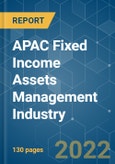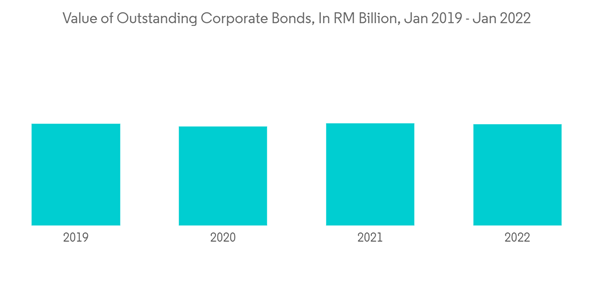The pandemic has made 2020 a year of high market volatility, and APAC asset managers have responded by allocating their investments to the fixed income space.
Emerging markets have grown rapidly over the past two decades, and sovereign and corporate borrowers are increasingly reliant on bond financing. Given the widespread concern over what will happen to emerging market bonds as central banks in major advanced economies start to unwind quantitative easing policies and raise interest rates.
Mutual funds - which are subject to outflow pressures - liquidated their bond holdings in the relatively risky emerging Asian bond markets, while insurance companies, annuities, and pension funds - which are not subject to outflow pressures - bought extra bonds in these markets. Mutual funds tended to invest more in relatively safe assets (developed Asia-Pacific local currency government bonds) and less in relatively risky assets (developed Asia-Pacific corporate bonds).
Such risk-averse global investors create huge outflows and market turmoil during recessionary periods. In order to mitigate the impact of such behavior of global asset managers on bond markets, policymakers in APAC are fostering a truly domestic and stable institutional investor base such as domestic pension funds and insurance companies, who could act as a natural buyer of bonds when foreign investors sell and dampen market volatility during market stress.
Corporate bond issuance in emerging market economies increases when the markets exhibit substantial liquidity. The Malaysian corporate bond market has grown dramatically over the last few decades. Corporate bonds outstanding as a proportion of GDP in Malaysia has increased steadily. As a percent of GDP, the Malaysian corporate bond market is among the largest local currency bond markets among emerging market economies. Corporate sukuk or Islamic bonds have grown the most.
But the corporate bonds' liquidity has not progressed at a similar pace. Low liquidity appears to characterize both conventional and Islamic corporate bonds in Malaysia. Illiquidity may hamper access to local currency debt financing, so its measurement is an important topic for regulators and issuers.
A rational investor would invest in a fund only if its expected return exceeds participation costs. As the expected return of a fund is often based on its past performance, mutual funds with higher participation costs can attract inflow only when they have a track record of outperforming returns. As the assets held by EME bond funds are generally low in liquidity, managers of these funds have adopted practices to pre-empt fire sales.
Australia also has a significant government and corporate bond market and is home to the largest financial futures and options exchange in the Asia-Pacific region. Also, despite the occasional wobble, China’s economic expansion has had a huge cumulative impact. An infographic on real returns from bonds in selected countries is presented below.
The report includes an overview of asset managers operating across APAC or in one or a few countries within the region. The report provides detailed profiling of a few major companies which cover their product offerings, regulations governing them, their headquarters, and financial performance. Currently, some of the major players dominating the market are listed below.
This product will be delivered within 2 business days.
Emerging markets have grown rapidly over the past two decades, and sovereign and corporate borrowers are increasingly reliant on bond financing. Given the widespread concern over what will happen to emerging market bonds as central banks in major advanced economies start to unwind quantitative easing policies and raise interest rates.
Mutual funds - which are subject to outflow pressures - liquidated their bond holdings in the relatively risky emerging Asian bond markets, while insurance companies, annuities, and pension funds - which are not subject to outflow pressures - bought extra bonds in these markets. Mutual funds tended to invest more in relatively safe assets (developed Asia-Pacific local currency government bonds) and less in relatively risky assets (developed Asia-Pacific corporate bonds).
Such risk-averse global investors create huge outflows and market turmoil during recessionary periods. In order to mitigate the impact of such behavior of global asset managers on bond markets, policymakers in APAC are fostering a truly domestic and stable institutional investor base such as domestic pension funds and insurance companies, who could act as a natural buyer of bonds when foreign investors sell and dampen market volatility during market stress.
Key Market Trends
Corporate Bonds in Malaysia is Driving the Market
Corporate bond issuance in emerging market economies increases when the markets exhibit substantial liquidity. The Malaysian corporate bond market has grown dramatically over the last few decades. Corporate bonds outstanding as a proportion of GDP in Malaysia has increased steadily. As a percent of GDP, the Malaysian corporate bond market is among the largest local currency bond markets among emerging market economies. Corporate sukuk or Islamic bonds have grown the most.
But the corporate bonds' liquidity has not progressed at a similar pace. Low liquidity appears to characterize both conventional and Islamic corporate bonds in Malaysia. Illiquidity may hamper access to local currency debt financing, so its measurement is an important topic for regulators and issuers.
Bond Yields of Emerging Market Economies in Asia Pacific
A rational investor would invest in a fund only if its expected return exceeds participation costs. As the expected return of a fund is often based on its past performance, mutual funds with higher participation costs can attract inflow only when they have a track record of outperforming returns. As the assets held by EME bond funds are generally low in liquidity, managers of these funds have adopted practices to pre-empt fire sales.
Australia also has a significant government and corporate bond market and is home to the largest financial futures and options exchange in the Asia-Pacific region. Also, despite the occasional wobble, China’s economic expansion has had a huge cumulative impact. An infographic on real returns from bonds in selected countries is presented below.
Competitive Landscape
The report includes an overview of asset managers operating across APAC or in one or a few countries within the region. The report provides detailed profiling of a few major companies which cover their product offerings, regulations governing them, their headquarters, and financial performance. Currently, some of the major players dominating the market are listed below.
Additional Benefits:
- The market estimate (ME) sheet in Excel format
- 3 months of analyst support
This product will be delivered within 2 business days.
Table of Contents
1 INTRODUCTION
4 MARKET DYNAMICS
5 MARKET SEGMENTATION
6 COMPETITIVE LANDSCAPE
Companies Mentioned (Partial List)
A selection of companies mentioned in this report includes, but is not limited to:
- Nomura Asset Management Co Ltd
- AEGON-Industrial Fund Management Co Ltd
- Fullgoal Fund Management Co. Ltd
- Australian Super Pty ltd
- SBI Ltd
- Kasikorn Asset Management Ltd
- Invesco Great Wall Fund Management Co Ltd
- SCB Asset Management Co Ltd
- Vanguard Investments Australia Ltd
- Harvest Fund Management Co Ltd (China)*










